- Home
- Clarice Lispector
An Apprenticeship or the Book of Pleasures
An Apprenticeship or the Book of Pleasures Read online
An Apprenticeship
ALSO BY CLARICE LISPECTOR
AVAILABLE FROM NEW DIRECTIONS
* * *
Água Viva
The Besieged City
A Breath of Life
The Chandelier
The Complete Stories
The Foreign Legion
The Hour of the Star
Near to the Wild Heart
The Passion According to G. H.
Selected Crônicas
Soulstorm
Copyright © 1969 by the Heirs of Clarice Lispector
Translation copyright © 2021 by Stefan Tobler
Afterword copyright ©2021 by Sheila Heti
Originally published as Uma aprendizagem ou o livro dos prazeres.
Published by arrangement with the Heirs of Clarice Lispector
and Agencia Literaria Carmen Balcells, Barcelona.
All rights reserved. Except for brief passages quoted in a newspaper, magazine, radio, television, or website review, no part of this book may be reproduced in any form or by any means, electronic or mechanical, including photocopying and recording, or by any information storage and retrieval system, without permission in writing from the Publisher.
First published clothbound by New Directions in 2021
Manufactured in the United States of America
Design by Erik Rieselbach
Library of Congress Cataloging-in-Publication Data
Names: Lispector, Clarice, author. | Tobler, Stefan, 1974– translator. |
Heti, Sheila, 1976– writer of afterword. | Moser, Benjamin, editor.
Title: An apprenticeship, or, The book of pleasures / Clarice Lispector ;
translated from the Portuguese by Stefan Tobler ;
afterword by Sheila Heti ; edited by Benjamin Moser.
Other titles: Aprendizagem. English | Book of pleasures
Description: First edition. | New York : New Directions, 2021.
Identifiers: LCCN 2020043515 | ISBN 9780811230612 (hardcover) |
ISBN 9780811230674 (ebook)
Subjects: LCSH: Man-woman relationships—Fiction. |
Psychological fiction.
Classification: LCC PQ9697.L585 A8713 2021 | DDC 869.3/42—dc23
LC record available at https://lccn.loc.gov/2020043515
New Directions Books are published for James Laughlin
by New Directions Publishing Corporation
80 Eighth Avenue, New York 10011
Contents
Note by Clarice Lispector
AN APPRENTICESHIP
Afterword by Sheila Heti
Landmarks
Cover
Note
This book demanded a greater liberty that I was afraid to give. It is far above me. Humbly I tried to write it. I am stronger than I.
C.L.
the origin of spring
or
the necessary death
in the middle of the day
, being so busy, she’d just come from the grocery shopping that the maid had rushed because she was shirking more every day, though she only came in to get lunch and dinner ready, she’d dealt with a few things on the phone, including one awfully difficult call to the plumber, she’d gone to the kitchen to put away the groceries and place the apples, which were her best food, in the fruit bowl, despite not knowing how to arrange fruit, but Ulisses had hinted at the future possibility of for example making the fruit bowl look pretty, saw what the maid had left for dinner before leaving, because lunch had been terrible, meanwhile she’d noticed that the small terrace which was a perk of her ground-floor apartment needed to be washed, got a call inviting her to a charity cocktail party for something she hadn’t quite understood but which was related to her primary school, thank God it was the holidays, gone to her wardrobe to choose a dress that would make her extremely attractive for the meeting with Ulisses who’d already said that she had no fashion sense, remembered that as it was Saturday he’d have more time because he wasn’t teaching at the University’s summer school on Saturdays, thought about what he was becoming for her, about what he seemed to want her to know, supposed that he was just wanting her to live without pain, he’d once said that he wanted, when someone asked her name, for her not to say “Lóri” but to be able to reply “my name is I,” since your name, he’d said, is an I, wondered if the black-and-white dress would do,
then from the very womb, like a distant quivering in the earth that hardly knew itself to be a sign of the earthquake, from the uterus, from the tensed heart came the gigantic tremor of a powerful, shaking pain, from the whole body a shaking — and with subtle grimaces of face and of body at last with the difficulty of an oil ripping open the ground — came at last the great dry sob, a wordless sob without any sound even for herself, the one she hadn’t suspected, the one she’d never wanted and hadn’t foreseen — rattled like the strong tree that is more deeply shaken than the fragile tree — at last pipes and veins were burst, then
she sat down to rest and was soon pretending that she was a blue woman because the dusk later on might be blue, pretends she’s spinning sensations with threads of gold, pretends that childhood is today and silver-plated with toys, pretends that a vein hadn’t opened and pretends that from it in whitest silence scarlet blood isn’t pouring, and that she isn’t pale as death but this she was pretending as if it really were true, amidst the pretending she needed to speak the truth of an opaque stone so it could contrast with the glinting green pretending, pretends that she loves and is loved, pretends that she doesn’t need to die of longing, pretends that she’s lying in the transparent palm of the hand of God, not Lóri but her secret name that for the time being she still can’t enjoy, pretends she’s alive and not dying since in the end living was no more than getting ever closer to death, pretends she doesn’t drop her arms in confusion when the threads of gold she’s been spinning get tangled and she doesn’t know how to undo the fine cold thread, pretends she’s clever enough to undo the knots of ship’s rope that were binding her wrists, pretends she has a basket of pearls just in order to look at the color of the moon since she is lunar, pretends that she closes her eyes and beloved beings appear when she opens her eyes moist with gratitude, pretends that everything she has isn’t pretend, pretends that her chest is relaxing and a weightless golden light is guiding her through a forest of silent pools and tranquil mortalities, pretends she isn’t lunar, pretends she isn’t crying inside
— because gently now, though her eyes were dry, her heart was soaked; she’d now escaped the voracity of living. She remembered to write Ulisses to tell him what had happened,
but nothing had happened that was utterable in written or spoken words, the system Ulisses had invented was good: whatever she didn’t know or couldn’t say, she’d write down and mutely give him the piece of paper — but this time she didn’t even have anything to tell.
Lucid and calm now, Lóri remembered reading that a captive animal’s hysterical movements were intended to free it, through one of these movements, from the unknown thing that was holding it — not knowing which single, exact, and liberating movement was what made an animal hysterical: it was pleading for a loss of control — during Lóri’s wise loss of control she’d grasped for herself now the liberating advantages of her more primitive and animal life: she had pleaded hysterically to so many contradictory and violent feelings that the liberating feeling had finally released her from the net, in her animal ignorance she didn’t even know ho
w,
she was worn out by the effort of the liberated animal.
And now the moment had come to decide whether she’d keep seeing Ulisses. In sudden rebellion she didn’t want to learn what he was patiently seeming to want to teach and she herself to learn — she was rebelling more than everything because it wasn’t for her the right time for “meditation” which suddenly seemed ridiculous: she was quivering with pure desire as she did before and after menstruation. But it was as if he wanted her to learn to walk on her own legs and only then, prepared for freedom by Ulisses, would she be his — what did he want from her, other than to desire her contentedly? At first Lóri had been wrong and thought that Ulisses wanted to transmit to her some things from his philosophy classes but he said: “philosophy’s not what you need, if it was it would be easy: you’d audit my classes and I’d talk with you in other terms,”
well now that the earthquake would lend itself to her hysteria and now that she was liberated she could even put off the decision not to see Ulisses: except she wanted to see him today and, though she couldn’t stand his mute desire, she knew that in fact she was the one provoking him in order to try to break the patience with which he was waiting; she used the allowance her father sent her to buy expensive, always tight dresses, it was the only way she knew to attract him and
it was time to get dressed: she looked in the mirror and was only beautiful because she was a woman: her body was slim and strong, one of the — imaginary — reasons that made Ulisses desire her; she chose, despite the heat, a dress made of thick cloth, almost shapeless, her body would be the shape but
dressing up was a ritual that put her in a serious mood: the cloth was no longer a mere fabric, it was becoming the matter of the thing and it was this material to which with her body she gave body — how could a simple rag gain such movement? her hair, washed and dried by the sun that morning on the little terrace was of the oldest chestnut silk — beautiful? no, a woman: Lóri then carefully painted her lips and eyes, which she did, according to a colleague, very badly, dabbed perfume on her forehead and cleavage — the earth was perfumed with a thousand crushed leaves and flowers: Lóri put on perfume and this was one of her imitations of the world, she who was trying so hard to learn life — with perfume, somehow she was intensifying what she was and that’s why she couldn’t use perfumes that contradicted her: perfuming herself was an instinctive knowledge, come from millennia of apparently passive women learning, and, like any art, it demanded a minimum of self-knowledge: she’d wear a slightly suffocating perfume, delicious as soil, as if her resting head were crushing the soil, and whose name she wouldn’t say to any of her fellow teachers: because it was hers, it was her, since for Lóri putting on perfume was a secret and almost religious act
— should she wear earrings? she hesitated, for she wanted simply delicate and unadorned ears, something modestly nude, she hesitated again: even richer would be to hide her doe-like ears behind her hair and make a secret of them, but she couldn’t resist: she uncovered them, tucking her hair behind her incongruous and pale ears: an Egyptian queen? no, all adorned like the women of the Bible, and there was also something about her made-up eyes that said with melancholy: decipher me, my love, or I’ll have to devour you, and
now ready, dressed, as pretty as she could make herself, she again wondered whether or not to meet Ulisses — ready, arms hanging by her side, lost in thought, would she or wouldn’t she meet him? around Ulisses she acted like the virgin she no longer was, though she was sure he sensed it too, that strange wise man who nonetheless didn’t seem to guess that she wanted love.
Once more, in her confused hesitation, what reassured her was something that had so often calmed and supported her: the knowledge that everything that exists, exists with absolute exactness and ultimately whatever she ended up doing or not doing would not escape that exactness; something the size of a pinhead would not extend by a fraction of a millimeter beyond the size of a pinhead: everything that existed was of a great perfection. Except most of what existed with such perfection was, technically, invisible: the truth, clear and exact in itself, was vague and almost imperceptible upon reaching the woman.
Well, she sighed, even if it wasn’t reaching me clearly, at least she knew that there was a secret meaning to the things of life. So it was she knew that she occasionally, even if somewhat confusedly, ended up sensing perfection—
these thoughts again, which she was somehow using as a reminder (that, because of the perfection that existed, she’d end up doing the right thing)—once again the reminder acted upon her and with eyes darkened even more now with her perturbed thoughts, she decided she’d see Ulisses at least one more time.
And it wasn’t because he was waiting for her, since often Lóri, counting on Ulisses’s offensively excessive patience, just wouldn’t show up, without letting him know; though at the idea that Ulisses’s patience could run out, her hand rose to her throat trying to staunch an anguish like the one she felt when she wondered “who am I? who is Ulisses? who are people?” It was as if Ulisses had an answer for all of this and had decided not to give it — and now the anguish was returning because she was realizing once again that she did need Ulisses, which made her despair — she wanted to be able to keep seeing him, but without needing him so violently. If she were a person entirely alone, as before, she’d know how to feel and act inside a system. But now, with Ulisses entering ever more fully into her life, she, feeling protected by him, had started to fear losing his protection—
— though she herself wasn’t sure what she meant by “being protected”: did she, perhaps, have a childish wish to have everything but without the anxiety of having to give something in return? Was protection a presence? If she were protected by Ulisses even more than she already was, she’d immediately aim for the maximum: to be so protected that she wouldn’t fear being free: since from her flights of freedom she’d always have somewhere to return.
Having glimpsed her whole body in the mirror, she thought that protection would also mean no longer being one single body: being one single body would give her, as it did now, the impression of being cut off from herself. Having a single body surrounded by isolation, made that body so circumscribed, she felt, that she’d then fear being a person on her own, she looked greedily at herself in the mirror and said amazed: how mysterious I am, I’m so delicate and strong, and the lips’ curve maintained its innocence.
It then seemed to her, mulling things over, that there wasn’t a man or woman who hadn’t chanced to look in the mirror and been taken aback. For a fraction of a second the person saw herself as an object to be looked at, which could be called narcissism but, already influenced by Ulisses, she’d call: pleasure in being. To find in the external figure the echoes of the internal figure: ah, so it’s true I wasn’t just imagining it: I exist.
And because of that very fact of having seen herself in the mirror, she felt how small her condition was because a body is smaller than the thought — to the point that it would be useless to have more freedom: her small condition wouldn’t allow her to make use of freedom. Whereas the condition of the Universe was so great that it wasn’t called a condition. Ulisses’s human condition was greater than hers which, nonetheless, was rich in day-to-day life. But her mismatch with the world was so great it was comic: she hadn’t managed to walk in step with the things around her. She’d already tried to keep pace with the world and had only made a fool of herself: one of her legs was always far too short. (The paradox was that she ought to accept her limping condition gladly, because it too was part of her condition.) (Only when she tried to keep up with the world did she shatter and frighten herself.) And suddenly she smiled to herself with a bitter smile, but that wasn’t bad because it too belonged to her condition. (Lóri often grew tired because she never stopped being.)
It seemed to her that Ulisses, if she plucked up the courage to tell him what she was feeling, and she never would, if she told him
he’d reply more or less like this and very calmly: the condition can’t be cured but the fear of the condition is curable. He’d say that or something else — it irritated her because every time a sharper or wiser thought like this occurred to her, she’d suppose that Ulisses was the one who’d have it,
she, who recognized with gratitude the general superiority of men who smelled like men and not perfume, and recognized with irritation that in truth these thoughts she was calling sharp or wise were themselves the result of spending more time with Ulisses. And even the fact that her “sufferings” now came less frequently, which she owed to Ulisses—“sufferings”? was being pain? And was it only when being was no longer pain that Ulisses would consider she was ready to sleep with him? No, I won’t go, she then thought to shake loose of him. But this time she didn’t want him to go to the bar and wait for her: to offend him she wanted to tell him she wasn’t going, he who was used to her not showing up and not even letting him know. This time she’d tell him she wasn’t going, which was a more positive offense.
Had moments gone by or three thousand years? Moments according to the clock by which time is divided, three thousand years according to what Lóri felt when with heavy anguish, all dressed and made up, she reached the window. She was a four-millennia-old woman.
No — it wasn’t red. It was the sensual union of the day with its duskiest hour. It was almost night and there it was still light. If only there was red visibly, the way it was inside her intrinsically. But it was a heat of light without color, and motionless. No, the woman couldn’t breathe. She was dry and limpid. And outside the only birds that were flying had taxidermied feathers. If the woman would close her eyes in order not to see the heat, for it was a visible heat, only then would the slow hallucination appear symbolizing it: she was seeing thick elephants approach, sweet and heavy elephants, their skin dry, though soaked inside their flesh by an unbearable hot tenderness; they had trouble bearing themselves, which made them slow and heavy.

 The Stream of Life
The Stream of Life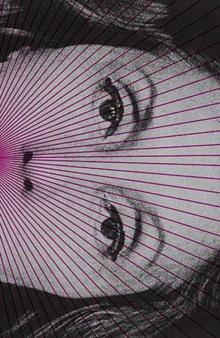 The Complete Stories
The Complete Stories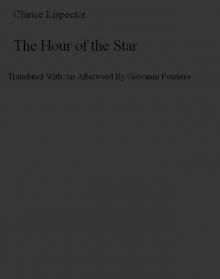 The Hour of the Star
The Hour of the Star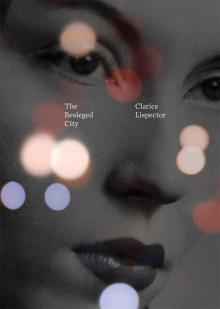 The Besieged City
The Besieged City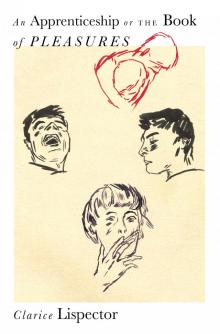 An Apprenticeship or the Book of Pleasures
An Apprenticeship or the Book of Pleasures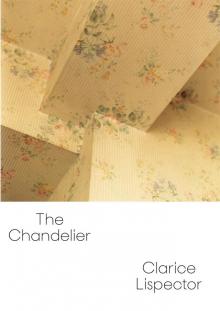 The Chandelier
The Chandelier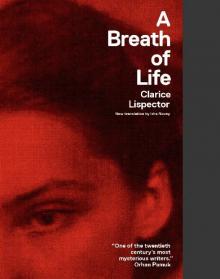 A Breath of Life
A Breath of Life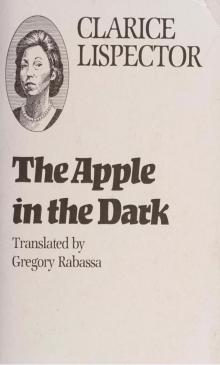 The Apple in the Dark
The Apple in the Dark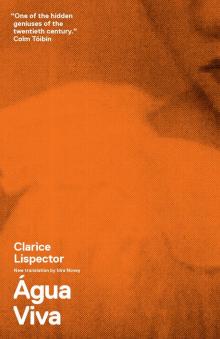 Agua Viva
Agua Viva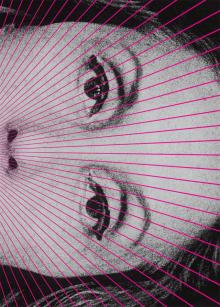 Complete Stories
Complete Stories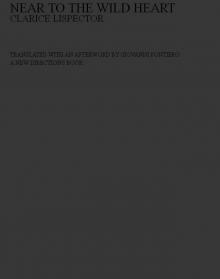 Near to the Wild Heart
Near to the Wild Heart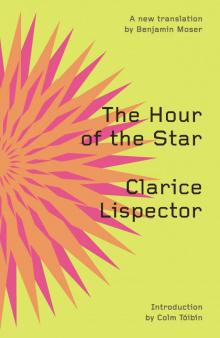 The Hour of the Star ()
The Hour of the Star ()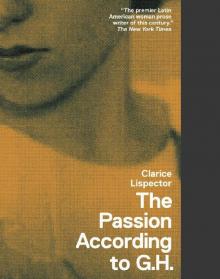 The Passion According to G.H.
The Passion According to G.H.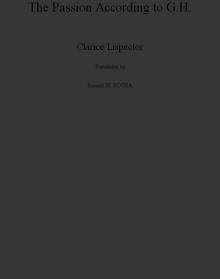 The Passion According to GH
The Passion According to GH